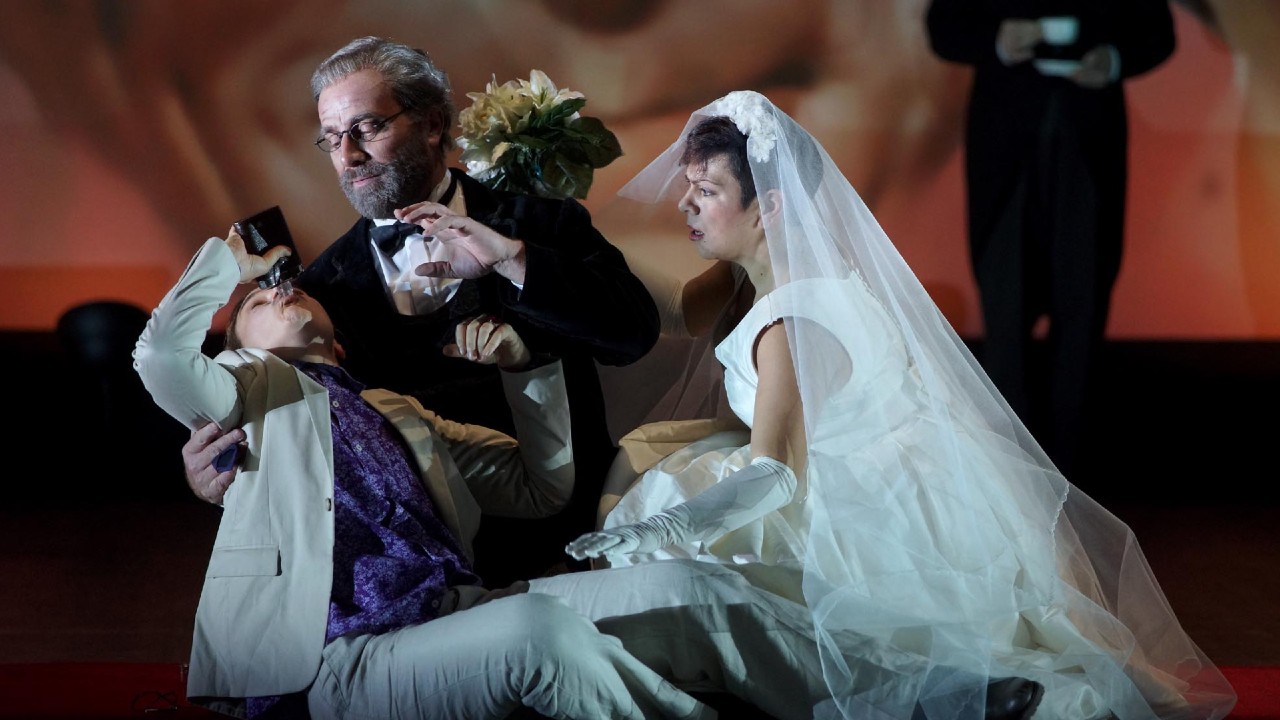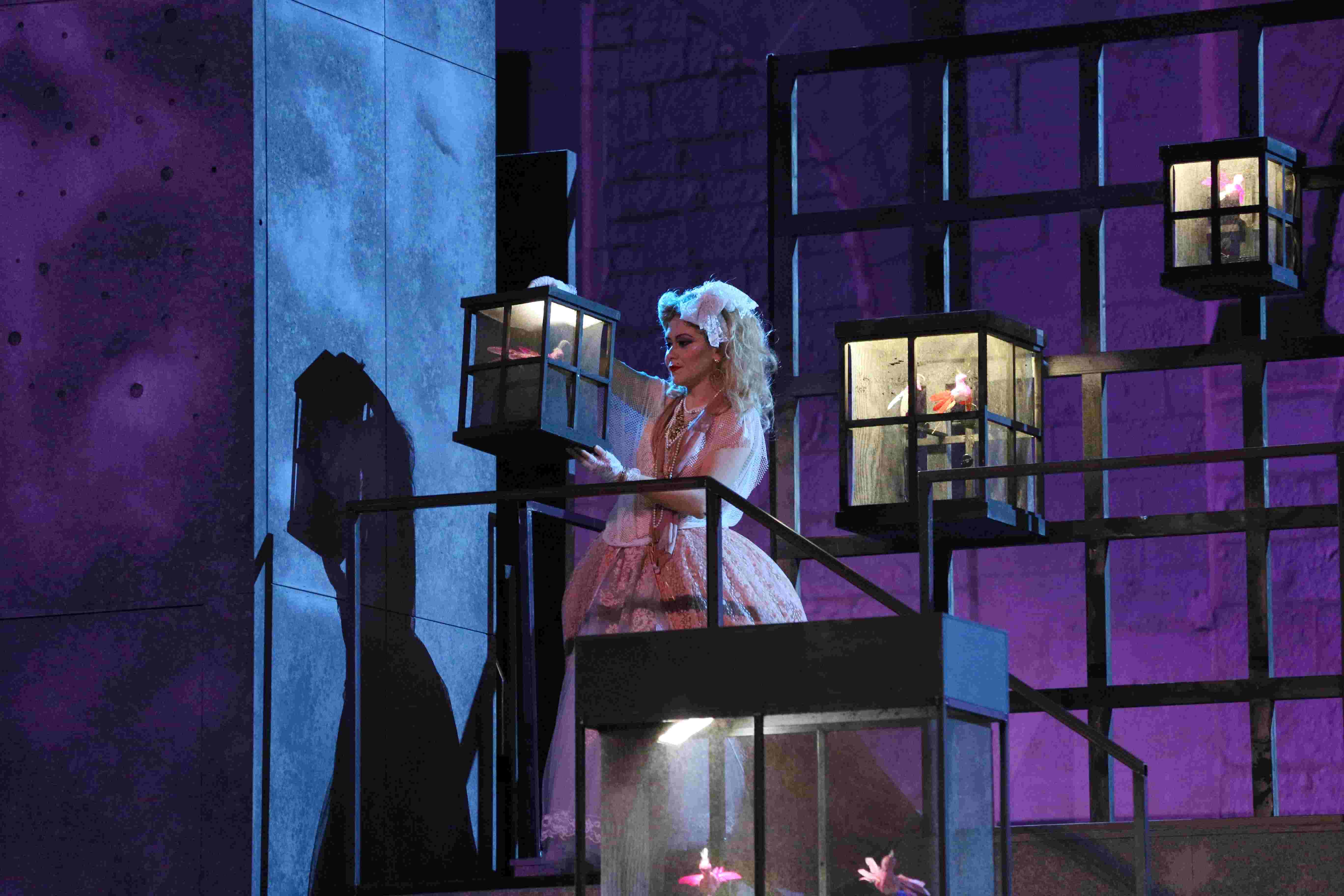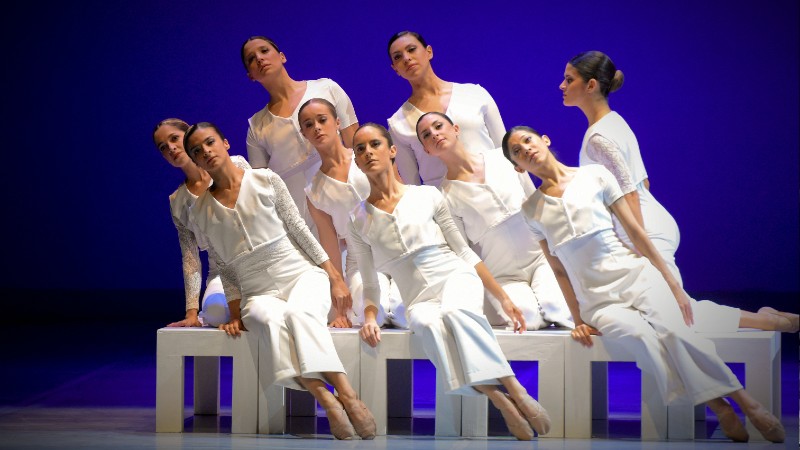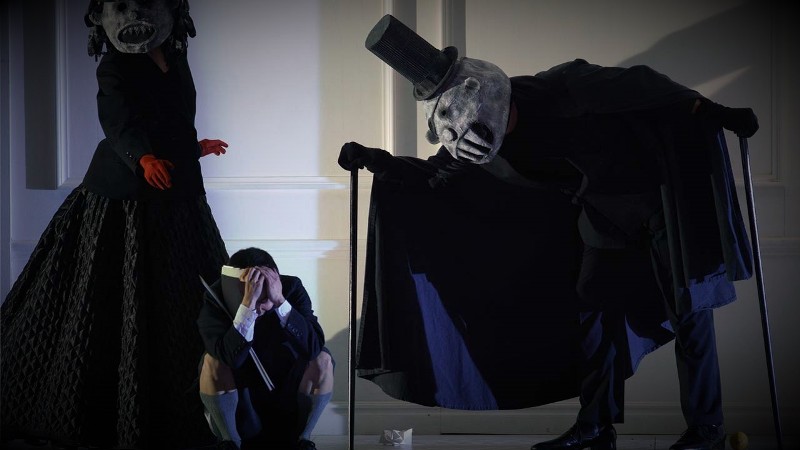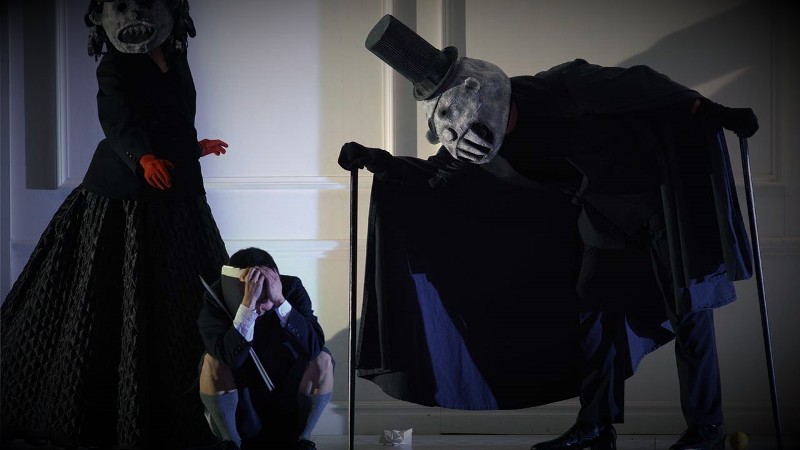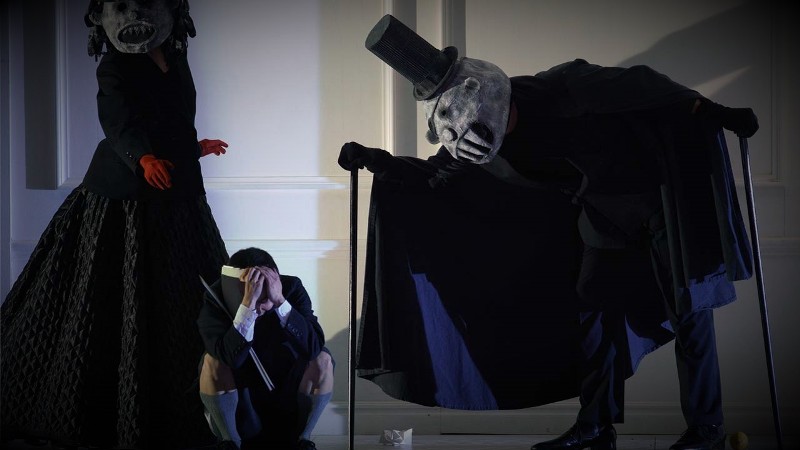Contrary to what usually occurs when great literature is adapted for an opera libretto, Antonio Salvi improved the Pierre Corneille play on which Haendel based his Rodelinda The tyrant Grimoaldo, who has usurped the throne of Lombardy, wants to marry the wife of the deposed King Bertarido. Everyone believes the former king is dead, but he had actually fled into exile and has secretly returned. Between her husband Bertarido and the “Sheep in Wolf’s Clothing” Grimoaldo, who seems to be a cruel tyrant, but is tormented by guilt for his crimes, is Rodelinda. She is at the centre of the story because all the characters want to legitimise their power by marrying her. Yet she remains completely faithful to her husband, despite the visceral strife of the aspirants to the throne, who want to use her for their own ends. Rodelinda is the most intelligent character, she understands the weaknesses of the others and manipulate them as part of her own strategy.
At the turning point of the story, Grimoaldo decides to abandon his betrothed Eduige and force Rodelinda to marry him to legalize his seizing of the throne. Rodelinda refuses and continues to mourn her husband Bertarido, whom she believes to be dead. But, aware that her position is precarious and that she will not be able to put Grimoaldo’s demands off for long, she decides to avoid a definite refusal. Instead, she imposes a condition which she knows will be unacceptable to his weak nature and will drive the mild-mannered tyrant into an anxiety attack. She will only marry him if he first murders her son Flavio with his own hands because - she tells him plainly - , she refuses to be both the wife of an usurper and the mother of the legitimate heir to the throne. She is a Clytemnestra who refuses to marry Aegisthus during Agamemnon’s absence, so that Flavio, if he should survive, would not become a new Orestes, or a Hamlet, who takes revenge on his mother for marrying his father’s killer. Rodelinda is a woman of excellent judgement, aware that her marriage to her husband’s usurper (and as far as she knows, murderer) cannot lead to anything good. She is also aware that Grimoaldo is a would-be tyrant who is scarcely able to conceal his true nature as a kind and reasonable provincial governor, pragmatic and charming. He falls well short of the Machiavellian skills needed to fulfil his ambitions.
The truly wicked character in the story is not Grimoaldo, who was able to seize power largely through luck and despite his weaknesses, but Garibaldo, Duke of Turin, who has all the Machiavellian qualities the other lacks. He is scheming to win the throne for himself, and is quite prepared to massacre the entire family in cold blood if necessary. Only the news that Bertarido is not dead can put a stop to his plans.
The story deals with a power struggle set within a family, in a community which is its own world, but which is also a metaphor for human nature itself. This led Claus Guth to set Rodelinda in a family home, the private retreat from the outside world. The most vulnerable resident is Flavio, Rodelinda’s son, he is treated as a pawn and is subjected to countless dangers.
One could almost say the main character in the opera is, in fact, this child, who does not sing, but is made to suffer by the terrible cruelty of all the others. It often seems as if the story was being told through the nightmares of young Flavio, whose mother is ready to use him to keep a despised suitor at bay, and if not, to have him killed so he will never grow up to understand the treachery around him and seek revenge. Those terrified eyes see the family home as a threatening space full of dangers, he intuits this without really understanding.
Rodelinda is one of Händel’s most extraordinary operas and it includes some of the composer’s most inspired passages. Its debut in Spain, in this new Teatro Real production, is a remarkable event.
(Joan Matabosch, Artistic Director of the Teatro Real)
Opera in three acts
Music by Georg Friedrich Händel (1685-1759)
Libretto by Nicola Francesco Haym, adapted from the libretto Rodelinda, regina de' Longobardi, based in turn on the play Pertharite, roi des Lombards by Pierre Corneille
First performed at the King’s Theatre, London, on 13 February 1725
New production of the Teatro Real, in coproduction with the Oper Frankfurt, the Gran Teatre del Liceu, Barcelona and the Opéra National de Lyon
Titular Orchestra of the Teatro Real
Artistic team
Conductor | Ivor Bolton
Stage director | Claus Guth
Set and costumes designer | Christian Schmidt
Lighting designer | Joachim Klein
Video designer | Andi A. Müller
Playwright | Konrad Kuhn
Cast
Rodelinda | Lucy Crowe
Bertarido | Bejun Mehta
Grimoaldo | Jeremy Ovenden
Eduige | Sonia Prina
Unulfo | Lawrence Zazzo
Garibaldo | Umberto Chiummo


